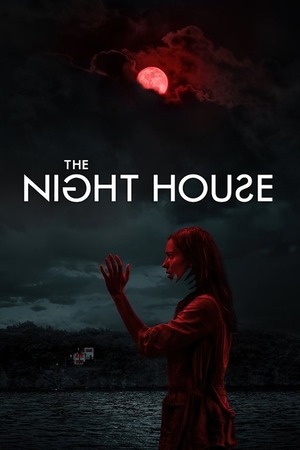
Directed by: David Bruckner
Starring: Rebecca Hall, Sarah Goldberg, Vondie Curtis-Hall, Evan Jonigkeit
🏚️ Introduction: A House Built on Loss
The Night House (2020) uses the haunted house genre to stage an exploration of grief, psychological rupture, and the uncanny. Beth, a schoolteacher whose husband has recently died by suicide, finds herself alone in their lakeside home—an architectural marvel that soon reveals cracks in both its structure and in Beth’s grasp on reality. What follows is a descent not into the supernatural, but into the depths of unresolved mourning and self-doubt.
🕯️ Grief as a Haunting Presence
The film situates grief as both a character and a force, animating the world around Beth. She is stalked by shadows, echoes, and mysterious patterns. The house, full of empty rooms and unfinished projects, is a mausoleum to her husband’s secrets. David Bruckner’s direction blurs the line between literal haunting and psychological breakdown; every noise, reflection, and architectural oddity becomes a potential clue—or trap.
As Beth investigates, her memories become unreliable. The boundaries between dream and waking, past and present, are eroded by loss. This ambiguity is both terrifying and poignant; it reveals the extent to which grief fractures one’s perception of self and world.
🪞 The Double and the Uncanny
The motif of “the double” runs through The Night House. Beth discovers reversed floorplans, photographs of women who look eerily like her, and a mirrored version of her own home across the lake. These doubles become manifestations of Beth’s deepest fears: that she is replaceable, unknowable, and perhaps complicit in her husband’s secrets.
The uncanny (unheimlich) is central—objects and spaces that should be familiar are rendered strange and threatening. The house, intended as a sanctuary, becomes a liminal space where reality and fantasy intermingle. Beth’s encounters with her “other” self evoke classic psychoanalytic ideas of the doppelgänger: a shadow self that embodies what is repressed or denied.
🔑 Secrets, Guilt, and the Search for Meaning
Beth’s investigation into her husband’s past uncovers disturbing patterns: occult books, hidden rooms, and a trail of lookalike women. Yet the film resists simple resolution. The more Beth learns, the less she understands, and the horror shifts from the external (a haunting) to the internal (her own psyche).
Guilt pervades every scene—guilt for not seeing signs, for surviving, for wanting answers when none may exist. The house’s shifting architecture mirrors Beth’s shifting sense of self. Closure, the film suggests, may be impossible; survival itself is the only certainty.
🌑 The Psychology of the Haunted
Bruckner’s film is notable for its empathy. Beth is not pathologized, but humanized; her unraveling is not just a descent, but a confrontation with the complexity of loss. The ambiguous figure haunting her is never fully explained, preserving the film’s tension between rationality and the supernatural. The most terrifying possibility is that there is no ghost—only the persistence of grief, forever reshaping what is real.
🎯 Final Thoughts
The Night House is a psychological thriller that weaponizes uncertainty and loss, using genre tropes to excavate the pain of mourning. Its haunting is less about external forces than about the struggle to live with unanswerable questions. In the end, Beth’s victory is not in banishing a ghost, but in enduring the uncertainty that death leaves behind.